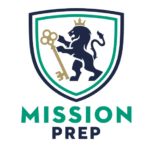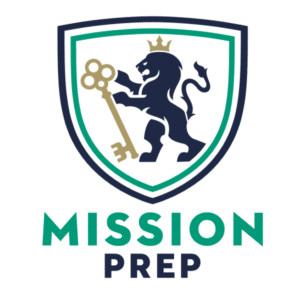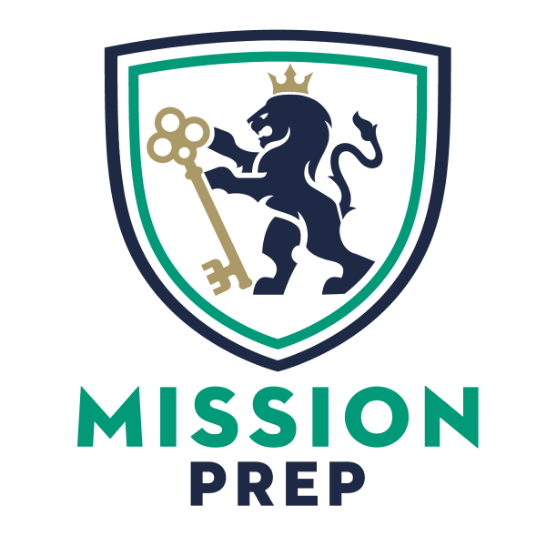Intellectual Assessments for Teens and Young Adults

IQ testing for teens – is it worth the effort? For many teenagers who feel like a curriculum doesn’t cater to their strengths or that they’re overlooked in the classroom, the answer to this question is “yes.”
The IDEA (Individuals with Disabilities Education Act) covers around 426,000 youths between 3 and 21 years of age with intellectual disabilities in the United States.¹ This gives us some idea about the number of young people currently struggling with a cognitive difficulty and their need for educational accommodations. And this number only reflects the young people who have been assessed.
On the flipside, there are many intellectually gifted teens in the U.S. who don’t receive the support they need because they’re overlooked. This is why the special education assessments teens need are becoming a necessity.
When teens struggle at school or seem ahead of the curve but aren’t fully supported, intellectual assessments can offer important answers. Teen academic ability evaluation can help identify how a young person thinks, solves problems, and processes information. They can also detect learning differences that aren’t always visible in day-to-day classroom settings.
Most importantly, an adolescent intelligence assessment can detect intellectual disabilities early, giving families a clear starting point for getting the support they need. At Mission Prep, we offer intellectual assessments for teens and young adults designed to uncover strengths, recognize challenges, and set a foundation for growth.
If you think that a teen could benefit from an academic assessment, this article can help clear things up by covering:
- What an intellectual assessment is
- Why intellectual assessments matter for teens and young adults
- The IQ testing process for teens
- What the most widely used cognitive assessment tool for children is
- How to understand intellectual assessment outcomes in teens
- Where to find professional intellectual testing services

What Is an Intellectual Assessment?
According to the Learning Disabilities Association of America, around 1 in 16 children in public schools have some kind of intellectual or learning disability.² Intellectual assessments can go a long way toward making sure these young people get the support they deserve in school and life.
The intellectual performance assessment teens with cognitive differences need is a structured process that measures their abilities. This process includes assessing their…
- Reasoning skills
- Memory
- Processing speed
- Problem-solving ability
At Mission Prep, IQ testing for teens forms part of a broader intellectual evaluation for youth. We don’t put teens into boxes or attach labels. It’s about understanding how they learn and solve challenges – and where they can thrive with the right support.
Why Do Intellectual Assessments Matter for Teens and Young Adults?
During adolescence, brain development moves quickly. Teens start to build more complex reasoning skills, better decision-making abilities, and a stronger sense of independence.
Evidence published in the National Library of Medicine tells us that intelligence and decision-making are linked. For example, the study shows that youths with a higher IQ tend to make better decisions and take fewer risks.³ But how does knowing a teen’s ability benefit parents?
Well, to put it as simply as possible, assessing a teen’s cognitive profile can provide insights into how they make decisions and where they may need support.
To put it another way, an adolescent intelligence assessment gives insight into where a teen stands during this critical period of growth. It helps parents and educators spot strengths, uncover hidden learning disabilities, and design better support plans. Whether gifted testing for teens is needed or a learning disability IQ assessment, early clarity matters.
Who Benefits From Intellectual Evaluation?
Youth cognitive development tests can help a wide range of teens, including those who:
- Struggle academically despite strong effort
- Seem bored or unchallenged at school
- Show uneven skill development (for example, having advanced reading skills but trouble with math)
- Have been referred for special education assessments
- Are being considered for gifted or advanced learning programs
By identifying intellectual strengths and weaknesses early, families can create the best environment for growth – academically, emotionally, and socially.
The IQ Testing Process for Teens
The IQ testing process starts with a conversation. At Mission Prep, we first get to know the teen’s history, challenges, and goals before we start developmental IQ screening.
From there, the adolescent intelligence assessment involves tasks that measure memory, problem-solving, verbal skills, and reasoning ability. These tasks are standardized, meaning they’re designed based on years of research to be fair and accurate for teens across different backgrounds.
Throughout the cognitive testing process, Mission Prep clinicians create a supportive environment where teens feel comfortable and understood instead of judged. What’s more, these assessments often use game-based or puzzle tasks, so they can be a fun instead of a stressful experience for teens.
What Is the Most Widely Used Cognitive Assessment Tool for Children?
When intelligence and behavior testing youth, a professional may use either one or several assessment tools. The Wechsler Intelligence Scale for Children (WISC-V) is the most widely used cognitive assessment tool for adolescents. It’s used to assess cognitive and intellectual capacity in children between the ages of 6 and 16.⁴ The WISC-V is what’s called a “closed test,” meaning that it can only be administered and scored by a trained professional.
The WISC-V offers a detailed breakdown of intellectual functioning, including:
- Verbal comprehension
- Visual-spatial ability
- Working memory
Other common tools for assessing teen cognitive functioning include:
- The Stanford-Binet Intelligence Scales⁵
- The Differential Ability Scales (DAS-II)⁶
- The Kaufman Assessment Battery for Children (KABC-II)⁷
At Mission Prep, we select the most appropriate assessment tool based on the teen’s needs. Whether it’s cognitive function exams for teenagers or a full academic ability evaluation, the goal is to get the clearest possible picture.
Understanding Intellectual Assessment Outcomes in Teens
When parents receive results from a youth cognitive development test, they may initially feel a little overwhelmed. This is normal, but scores aren’t everything. They’re just one piece of the puzzle.
The results of an assessment offer vital answers to how a teen might need extra support or greater challenge. This knowledge can shape educational plans, therapy approaches, and even career exploration down the line. It’s about empowerment, not labeling or boxing.
The outcomes of an assessment often highlight the need for support in the following areas.
Intellectual Strengths and Challenges
Every teen has a unique profile. Some might shine in verbal reasoning but may need help with memory. Others could show incredible problem-solving skills but struggle to organize their thoughts.
A mental acuity test for teens helps identify these patterns. Knowing a teen’s intellectual strengths builds confidence. Plus, recognizing areas of weakness allows for targeted support before frustration builds.
Giftedness and High Potential
Gifted testing for teens isn’t about creating pressure. It’s about making sure bright minds are challenged appropriately. For instance, a teen who is intellectually gifted may feel disconnected or even act out if they’re not engaged in school.
An accurate teen personality development test combined with a cognitive evaluation can help create the right learning environment where talent and curiosity are nurtured.
Learning Challenges and Disabilities
Not all struggles in school come from laziness or lack of effort. Sometimes, they’re signs of a deeper learning disability.
Learning disability IQ assessments can highlight areas where a teen might need specific interventions, such as with processing speed, working memory, or verbal reasoning. Early identification leads to better outcomes and greater self-esteem.
How Intelligence Affects Behavior
Cognitive abilities and behavior are deeply connected. For example, a teen who processes information quickly might get bored easily and become disruptive, and it’s not because they don’t care – it might be because they’re not being challenged. Another teen who struggles with abstract thinking might avoid schoolwork altogether, but it might not be because of laziness. Instead, the material could feel overwhelming or inaccessible. Behaviors such as these are often misunderstood or misinterpreted, leading to frustration for both teens and parents.
Through intelligence and behavior testing for youth, Mission Prep helps families understand the “why” behind behaviors, instead of only uncovering the behaviors themselves. When you know what’s driving a reaction, you can respond with empathy and support rather than punishment or guesswork. These insights help teens succeed academically, but also encourage better communication at home and stronger self-confidence. We don’t focus on labeling or making assumptions. Instead, we aim to understand what’s going on beneath the surface so real solutions can take root.
How to Find Professional Intellectual Testing Services
Finding the right provider for your teen’s intellectual assessment can make a world of difference in the accuracy of the results and how supported your teen feels throughout the process. Assessments aren’t just about checking boxes on a form. It’s about getting real answers that lead to meaningful support.
Start by looking for a provider that specializes in working with adolescents. Teens aren’t just “smaller adults.” They’re going through rapid cognitive, emotional, and social changes. A provider who understands these changes can tailor an assessment to suit your child’s stage of development, communication style, and learning needs.
Look for centers that offer:
- Licensed clinicians trained in adolescent testing
- Experience with learning disabilities, giftedness, and emotional regulation
- Clear communication about what’s involved
- Detailed follow-up and next-step planning
You’ll also want to ask whether they use research-backed tools, like the WISC-V or other age-appropriate assessments. It’s also worth checking whether testing is followed up with a written report, feedback session, and support in navigating school accommodations or treatment referrals.
At Mission Prep, we bring all of these important services together. Our assessments aren’t one-size-fits-all. We customize every step to your teen’s needs, collaborate closely with families, and focus on making the process feel human instead of clinical. From cognitive function exams to IQ testing for giftedness or learning challenges, we’re here to help you understand your teen better and support them more effectively.

Seek Our Teen Intellectual Assessment Services Today
At Mission Prep, we believe knowledge creates opportunity. Whether your teen is gifted, struggling, or somewhere in between, understanding how their mind works is the first step to unlocking their full potential. We help put things into perspective, starting with a cognitive function exam for teenagers to uncover the intellectual strengths and challenges that youth often have.
Get in touch with Mission Prep today to learn more about intellectual assessments for teens and young adults. Together, we can help your child move forward with confidence.
Call us at (866) 649-1223 to get started.
References
- Statista. (2023). Number of disabled 3 to 21 year olds in the U.S. 2022. https://www.statista.com/statistics/236305/number-of-disabled-youth-in-the-us/
- Learning Disabilities Association of America. (n.d.). The state of learning disabilities today. https://ldaamerica.org/lda_today/the-state-of-learning-disabilities-today/
- Flouri, E., Moulton, V., & Ploubidis, G. B. (2019). The role of intelligence in decision-making in early adolescence. British Journal of Developmental Psychology, 37(1), 101–111. https://pmc.ncbi.nlm.nih.gov/articles/PMC6492004/
- Elsevier. (n.d.). Wechsler Intelligence Scale for Children. ScienceDirect. Retrieved April 25, 2025, from https://www.sciencedirect.com/topics/neuroscience/wechsler-intelligence-scale-for-children
- Elsevier. (n.d.). Stanford-Binet Intelligence Scale. ScienceDirect. Retrieved April 25, 2025, from https://www.sciencedirect.com/topics/medicine-and-dentistry/stanford-binet-intelligence-scale
- Farmer, C., Golden, C., & Thurm, A. (2016). Concurrent validity of the Differential Ability Scales, Second Edition with the Mullen Scales of Early Learning in young children with and without neurodevelopmental disorders. Child Neuropsychology, 22(5), 556–569. https://pmc.ncbi.nlm.nih.gov/articles/PMC5588686/
- Kaufman, A. S., & Kaufman, N. L. (1983). Kaufman Assessment Battery for Children (K-ABC) [Database record]. APA PsycTests. https://psycnet.apa.org/doiLanding?doi=10.1037%2Ft27677-000

















